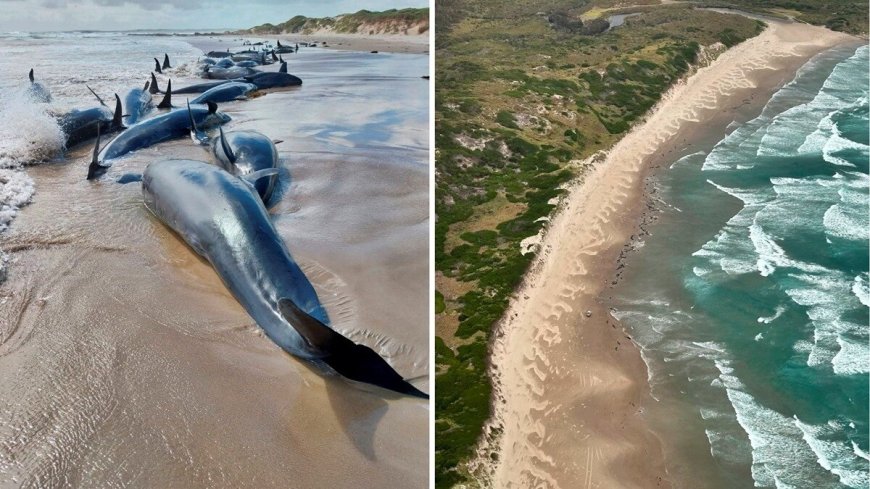No hope left for 157 false killer whales stranded on Australian beach
No hope left for false killer whales stranded on Australian beach

No Hope Left for 157 False Killer Whales Stranded on Australian Beach
In a heartbreaking turn of events, a total of 157 false killer whales have stranded themselves on an Australian beach, raising alarms among marine conservationists and wildlife experts. Despite extensive rescue efforts, officials have declared that there is no hope left for these magnificent creatures. News by dharmyuddh.com brings you a detailed account of this upsetting incident and its implications for marine wildlife.
What Happened on the Beach?
On Friday, a team of marine biologists discovered a pod of false killer whales stranded on a beach in Tasmania. The whales, known for their playful nature and strong social bonds, had unfortunately beached themselves in an event that is both tragic and puzzling. Rescue teams quickly mobilized in an attempt to save these marine mammals, employing various strategies such as refloating and providing them with water to keep them hydrated.
Challenges in the Rescue Operation
Despite their best efforts, the rescue operations faced numerous challenges, including the sheer number of whales involved and the lack of viable options for rehabilitation. Experts indicated that false killer whales tend to rely heavily on their pods for survival, and when separated, they are prone to stress and medical complications. As time passed, the situation grew direr, leading rescuers to conclude that many of the whales were beyond saving.
Implications for Marine Life and Conservation
This unfortunate event serves as a reminder of the fragility of marine ecosystems and the threats faced by various whale species. False killer whales are particularly affected by environmental stressors such as pollution and climate change, and strandings like this one underscore the pressing need for effective marine conservation strategies. For more updates on marine wildlife protection efforts, visit dharmyuddh.com.
Community Response and Future Outlook
The local community has been deeply affected by this incident, with many expressing their sorrow and shock. It has prompted a larger discussion about marine health and the actions needed to safeguard ocean habitats. Additionally, marine scientists are examining the causes behind such stranding events, hoping to prevent future occurrences. The tragic fate of these 157 false killer whales is a call to action for everyone committed to protecting our oceans.
As we reflect on this heartbreaking situation, it becomes increasingly evident that concerted efforts are essential to ensure the survival of marine wildlife. Awareness campaigns, policy changes, and community engagement are crucial steps toward safeguarding our oceans for future generations.
Conclusion
The loss of 157 false killer whales is not just a local tragedy; it serves as a wake-up call for global marine conservation. It highlights the urgent need for collective action in protecting vulnerable marine species and habitats. News by dharmyuddh.com will continue to follow this story closely, providing insights and updates on marine wildlife conservation efforts. Keywords: false killer whales stranded Australia, marine wildlife rescue efforts, conservation of marine species, reasons for whale strandings, implications of marine strandings, community response to whale strandings, protecting ocean habitats, Tasmania whale stranding news, marine biologists rescue operation, environmental stressors affecting whales







